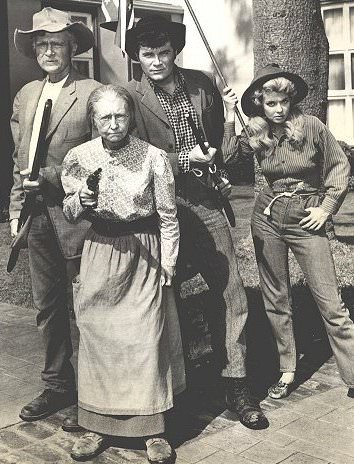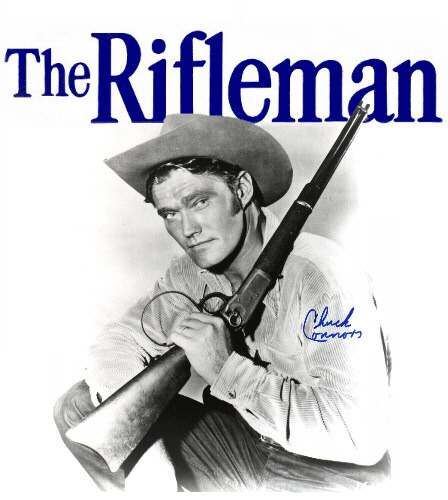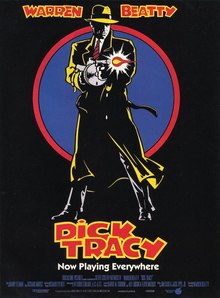House Rules
Custom Character Creation:Players could put eleven points into their aptitudes, each of which needed at least one. This could allow for anything from a rather lopsided character with three superior and two inferior aptitudes to a rather balanced character with one superior and no inferior aptitudes (I warned them, however, that well-balanced characters were a little like well-balanced people: kind of boring.)
Custom Equipment:
When it came to equipment, we followed a sort of BYOB rule for up to three guns or other high-value items that we actually own, or close approximations to them. For example: my brother's Winchester 70 shoots the somewhat-rare .270 WSM (didn't exist at all in 2000) and my niece wanted something with more knockdown power than her Browning BL-22, so they got a Winchester 70 firing .270 Win and a Browning BLR firing .243 Win, respectively.*
I also let them bring up to two of their own horses. I did NOT let them bring their own vehicles or bug-out bags, and I made them pay for their ammo. Had I not done so, I'm not sure if we would have had any need for the preparedness credits at all.
*in hindsight, I probably should have given her a rifle in .223 Rem. Not the greatest round in terms of ballistics or stopping power but it would be more plentiful.
Expanded Skills
I've already mentioned that Demolitions will be expanded to include the making of bombs as well as the arming and disarming of them. I also expanded Schooling to work for oddball or overlooked skills in much the same way as Preparedness works for oddball or overlooked items. If, for example, the characters needed someone who spoke French or could read a medical chart, they could roll to see if anyone ever studied that skill and remains familiar (qualified on an outstanding success roll) with it.
As with preparedness, this skill can only be used in a scenario as many times as the character has dice in it and Hooah may NOT be used to change the die roll.
Some examples of difficulty levels (for the average 20th Century American):
Routine-Imperial to Metric conversion, basic Algebra or HTML coding, general Civil War history
Standard-Spanish or French, medical terminology or electronics, general English/Russian Civil War history
Hard-Greek or Hebrew, safe cracking, paramedic training or computer programming
Oscar Charlie-Classical Gaelic, advanced surgery, the US Internal Revenue Code
New SkillsPresence-based skills
Recruitment works a lot like Personal Interaction, but is more about about changing someone's beliefs than their behaviour. Where Personal Interaction might be used to make a double agent out of a UN Stormtrooper, Recruitment would be used to convince him to abandon the occupation forces entirely and maybe even take up arms against them.
This skill is compared again the the opponent's Toughness or Personal Interaction skill (whichever is greater). Winning the contest means that his attitude changes by one degree (from an evil to neutral one or a neutral to good one, for example.) Two rolls would be needed to make a good character out of an evil one (or vise versa) and a third may be necessary before he would become part of your resistance group.
Getting people to change long-held personal convictions, especially when doing so carries a great risk of personal harm, is difficult and the dice modifiers should reflect that. I'd advise a -2 modifier for dealing with someone on the opposite end of the attitude spectrum and a -1 for adjacent attributes i.e. Sheep and Mercenaries. Positive modifiers could be given, say, for those who have reason to like you or who have reason to hate your enemies.
Recruitment of one person can only be attempted once a day. It can't be used in combat and failing the first roll against any UN authorities or their hirelings will likely result in that. Player Characters are immune to recruitment, though the player may choose to betray his teammates if he wishes. An NPC may only pretend to turn his coat as a means of infiltrating the resistance, and should probably be made to prove themselves before they're trusted too greatly.
Brainwashing is pretty much Recruitment in more hostile settings. Questioning, drugs and torture can't be used in conjunction with Brainwashing, though a highly successful roll may net some information, and three successful rolls will, of course, get you everything your prisoner knows.
Brainwashing can be attempted once a day. Player Characters are immune to it and NPCs can fake it. This could be used among more sinister resistance groups (cults) or as a means of convincing a character to conduct very harmful or disreputable acts (suicide bombing or attacks on civilians). To simulate reprogramming, just think of it as brainwashing in reverse.
Prowess-based skills
Rapid-fire deals with rapidly discharging a normally slow-firing weapon while maintaining a modicum of accuracy. Normally this would mean fanning a revolver, but skilled shooters can also do it with lever, bolt and pump-action weapons. Can only be attempted at a skill level of familiar or better and at point-blank or close range. This is a hard-difficulty task under most circumstances; standard with certain types of weapons (an Ithaca 37 or Lucas McCain's Winchester). Failure means that the weapon fires as normal. Catastrophic failure means single shot and -1 dice to accuracy.
Everyone in our party got a starting level of familiar.
Primitive Small Arms deals with the use of any projectile weapon less sophisticated than a Trapdoor Springfield, such as a bow or muzzleloader. Anyone skilled only in modern small arms can use these weapons at a -1 accuracy penalty, and must make the occasional difficulty roll to see if they run into any misfires or other accidents.
Most members of our party got a base level of familiar. My brother and I are both qualified.
Animal Handling refers mostly to horseback riding, though would also be used with other animals such as dogs or mules and other forms of transport such as pack animals or wagons. Often considered a leisure activity in better times, horses and mules have once again become a common sight in fuel-starved America and are used on both sides of the insurgency in more remote regions.
Riding a well-trained horse at a lope in good conditions is an automatic task for most people, and one with at least qualified should only make dice rolls in non-standard situations. Occasional standard-difficulty rolls would be needed in the case of haste, bad weather, poor training or temperament, and sudden surprises. Hard or worse would be needed if these were combined. Failing these rolls will give DR3 or so to the rider and may injure the horse as well.
Horses in combat:
Don't put your horse in combat if it can be avoided; ride to the general area, find a good hiding spot to tether it, and dismount. Horses are smarter than us and will try to run away from things that could kill them. Dedicated warhorses are rare even in military herds and automatic weapons can do pretty terrible things to them.
All horses have a strength of superior and a toughness of trained or expert (smaller animals like dogs and donkeys have average strength and qualified or trained toughness). Most have inferior guts and a coolness under fire of qualified (trained for police/rescue horses, expert for war horses). They roll coolness under fire pretty much every time they get shot at. Horses have HOOAH if their riders do, and both will want
Failure means that the horse becomes spooked. Bringing a spooked horse under control is a hard task or worse. Failing this roll means the horse will attempt to escape the combat zone and may throw the rider.
Injuries and recover
Horses can't be pained or suppressed from combat injuries and will probably remain ambulatory in spite of anything short of combat ineffectiveness or wounding to the legs. However, weapons have +2 DR rating against them.
Stabilization, Healing, and Recovery uses the medic skill and works for horses the same way as it does for humans, it just takes twice as long.
Members of the Resistance Fighter class get an Animal Handling skill skill level of qualified. Elite Military and Paramilitary get a skill level of familiar. Skill levels for our party were divided between qualified and familiar. My niece and brother get a level of trained.
Lastly, Crime is a brains or guts-based skill: the knowledge of how to commit, conceal and solve crimes. Picking a lock, hotwiring a car, counterfeiting, forging IDs, cooking meth, and setting up a racketeering ring all qualify. Picking up clues to those acts would probably fall under crime or awareness, whichever's higher. This could be used to determine the success of a criminal act, or in a skill contest between a perpetrator and investigator.
This refers to more subtle acts of lawbreaking and doesn't apply to things like terrorism, murder (unless you want to hide the body), possessing explosives, discharging weapons in city limits or other typical acts of RPG mayhem. Nor does it involve specific crimes that could probably be handled under other skills (Escape/Evade/Infiltrate for sneaking into a bank, Computers for hacking, Awareness for telling if that arms dealer you're talking to is an undercover cop, Medic for organ harvests and Repair/Maintenance for running a chop shop).
It may or may not be used for counter-intelligence activities like criminal profiling or network analysis, depending on whether or not one sees those as junk sciences.
Paramilitary get a skill level of familiar.






No comments:
Post a Comment